Dickey Betts: Nobody Knows // Marking the one year anniversary of his death
Marking the first anniversary of Dickey's death with a reflection on the life and legacy of the ABB guitarist and vocalist, after 30 years of interviewing and writing about him.
Today, April 18, marks the one year anniversary of Dickey Betts’ passing. Certainly, I’d be thinking of him today anyhow, but it feels especially poignant coming down off two stupendous nights at Madison square Garden, which The Brothers burned down while playing many Betts’ compositions, just another reminder of his centrality to the sound of the Allman Brothers Band,
Dickey and Warren were my entry points to the Allman Brothers Band, since my real involvement with them began when I became Managing Editor at Guitar World in 1991. (My first piece about them was for Tower Pulse in 1990 when Seven Turns came out. That story changed my life and I will share it here soon.)
Last year, as I prepared to write the below essay, I came across this little nugget in an old Dickey interview and it made me smile.
AP: Do you think that a big problem with the video age is that bands now have to look as good as they play?
BETTS: Not necessarily, because looking good doesn’t mean you have to be a sex star in leather pants and a torn tank top. I think that someone playing their ass off looks pretty damned good.
A curated Betts playlist:
If you enjoy my work, please subscribe and share. This is a grassroots reader-supported publication!
I wrote this essay about Dickey last year for Tidal magazine.
It was surreal watching Dickey Betts dominate national headlines and social media feeds as news of his death spread last April 18. After 30 years reporting on Betts and the Allman Brothers Band, and writing two books about them, his passing hit like the loss of a family member. Yet I was also happy that it was treated as a major news event and that he was receiving the accolades that often bypassed him.
This was partly the inevitable result of being a key member of a group named after two other people, and partly because the sustained greatness he displayed in the early ’90s came at a time when the music media didn’t care much about the band. It was that disinterest — and my own passion — that opened the door for me to become such a key chronicler of the Allman Brothers Band, mostly for Guitar World, where I was the managing editor. I was virtually the only national writer paying so much attention. I wanted the world to know that America’s greatest band was once again in fine form. Their music impacted me deeply, engaging my heart, body and soul. It took me on emotional and intellectual excursions that helped form who I am, and understand who I am.
Betts’ tenure with the ABB began in the shadow of Duane Allman, who put the group together, and ended in acrimony in 2000, when he and they split in a whirlwind of lawsuits. The group had another excellent 14-year run, mostly with Derek Trucks and Warren Haynes on guitars, which produced a whole new generation of ABB fans who didn’t really grasp just how central Betts was to the band’s development from day one. How he put them on his shoulders and carried them in the dark days after Duane’s 1971 death, and how he was the primary creative force behind their 1989 reunion.
Betts told me that “all the business people” thought he was crazy to include Haynes in the reformed band, asking if he was sure he “wanted to deal with someone so good” every night.
“I told them I didn’t want some lackey in the band,” Betts said. “Warren drives me to play things that I wouldn’t otherwise. And hopefully I do the same thing for him.”
This was how it had to be. As I wrote in Brothers and Sisters: The Allman Brothers Band and The Inside Story of the Album That Defined the ’70s, lead guitarists are like fighter pilots, surgeons, samurai warriors or heavyweight champions — alpha beings who generally do not seek to share the spotlight or be challenged. But Duane had a different idea when he was signed to a contract by Phil Walden, who had managed Otis Redding since they were both teenagers and was looking for his next star after Redding’s tragic passing. He and Atlantic Records’ Jerry Wexler first envisioned Duane as the leader of a trio, in the mold of Eric Clapton’s The Cream and the Jimi Hendrix Experience, but Duane had something bigger in mind. When he sat in with bassist Berry Oakley’s band The Second Coming, he was intrigued by what he and Betts immediately started playing together. The two had been well established for years as the hottest guitarists in a Florida scene that included Stephen Stills, Tom Petty, Mike Campbell, Lynyrd Skynyrd’s Gary Rossington and Allen Collins, and future Eagles members Bernie Leadon and Don Felder.
Betts’ melodic sense, rooted in the “string music” (bluegrass) that his family played in his youth, produced memorable lines which Duane jumped on, using his great ear and technical facility to add harmony and counterpoint on the fly. This sympatico musical relationship helped create one of the greatest guitar partnerships in rock and roll history. Their partnership rewrote the book on how two rock guitarists could play together, just as Jaimoe and Butch Trucks did for drummers.
Betts’ ideas and concepts formed the Allman Brothers Band’s backbone and musical DNA, setting the template for so much of what we now know as Americana. His fantastic songwriting included “Blue Sky,” “Jessica,” “Ramblin’ Man” and “In Memory of Elizabeth Reed,” plus late-era classics like “Seven Turns” and the majestic “Nobody Knows,” tunes that seamlessly incorporate blues, country and jazz into their rock and roll.
He had a wide musical palette and a compositional sense that sparkled in everything he played, from the pithy fills on Gregg Allman’s “Melissa” to the burning solo breakdown on At Fillmore East’s “You Don’t Love Me” — a molten solo often credited to Duane — to the fiery psychedelic jazz-rock of “Liz Reed,” which Haynes described as “Django Reinhardt on acid.”
Dickey’s reputation as a hell-raiser was well-earned and has been extensively reported, including by me in Brothers and Sisters and One Way Out: The Inside History of the Allman Brothers Band. This bad behavior obscured the depth, vision and intellectual curiosity at the core of Betts’ being. He had a deep love and knowledge of jazz, country, Western swing, folk and both acoustic and electric blues. Once, after fellow Guitar World editor Jimmy Brown and I finished up an extensive guitar lesson session with Betts in a Manhattan hotel room, we were leaving when he shouted to Jimmy, a marvelously gifted picker, “Hey, do you know ‘The Preacher’?”
When Jimmy said he did not, Betts jumped off the couch, ran over to us with guitar in hand and bent to one knee. Saying, “I haven’t played this in years, so bear with me,” he played Horace Silver’s beautiful slab of hard bop. Something in Jimmy’s chordal mastery had made Betts think of the song; he was just another guitarist sharing his love of a great tune with a fellow musician.
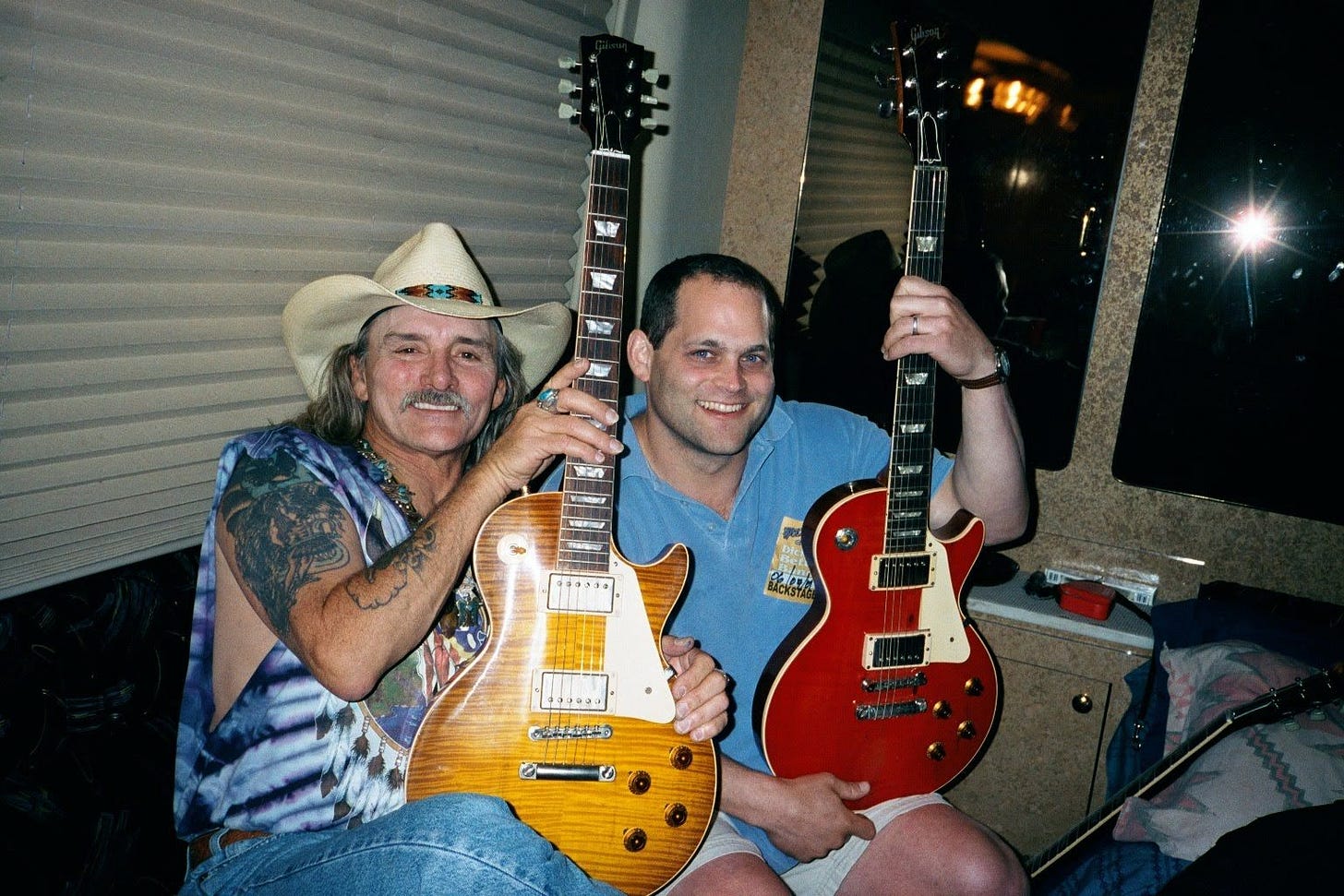
Dickey could be a looming, intimidating presence. He would sit head down, smoking a cigarette on the side of the Beacon stage before an Allman Brothers show, surrounded by a virtual force field. Or walk onto his bus glowering, with his cocky Jack Russell Terrier daring anyone to pet him. But he could also be warm, generous and funny, and it was easy to tell which side of Dickey you’d be interacting with the moment he entered a room.
“Dickey’s a real Charles Bronson type,” Gregg Allman said. “It doesn’t take long after you meet the guy to realize that there are things he knows about himself that you’ll never know, so don’t even get close to his space. Which is fine.”
In 2014, I took my 16-year-old son Jacob to see Betts and Great Southern at New Jersey’s State Theatre. We were sitting in the green room, chatting with my friend Andy Aledort, who played guitar in the band, when Betts came in and sat down with us. He was kind and outgoing to Jacob, who had been seeing him with me since he was two years old and was genuinely star struck. Dickey asked him about school, then we sat silent for a few beats before Betts spoke up again.
“You know who can really sing?” he asked rhetorically. “Bruno Mars.”
As Gregg said, “He’s a very intricate guy, Dickey Betts.”
The paperback edition of my fourth book, Brothers and Sisters: the Allman Brothers Band and The Album That Defined The 70s, was recently released by St. Martin’s Press. It was the third consecutive one to debut in the New York Times Non-Fiction Hardcover Bestsellers List, following Texas Flood: The Inside Story of Stevie Ray Vaughan and One Way Out: The Inside History of the Allman Brothers Band. My first book, Big in China: My Unlikely Adventures Raising a Family, Playing the Blues and Becoming a Star in Beijing, about my experiences raising a family in Beijing and touring China with a popular original blues band, was optioned for a movie by Ivan Reitman’s Montecito Productions. I am also a guitarist and singer with two bands, Big in China and Friends of the Brothers, the premier celebration of the Allman Brothers Band.


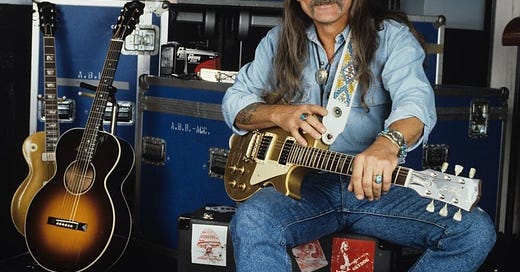



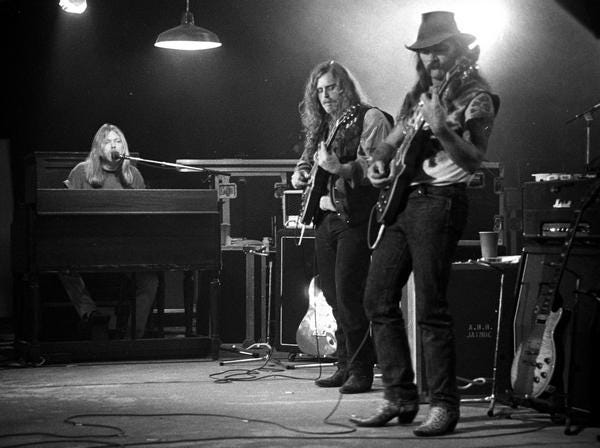
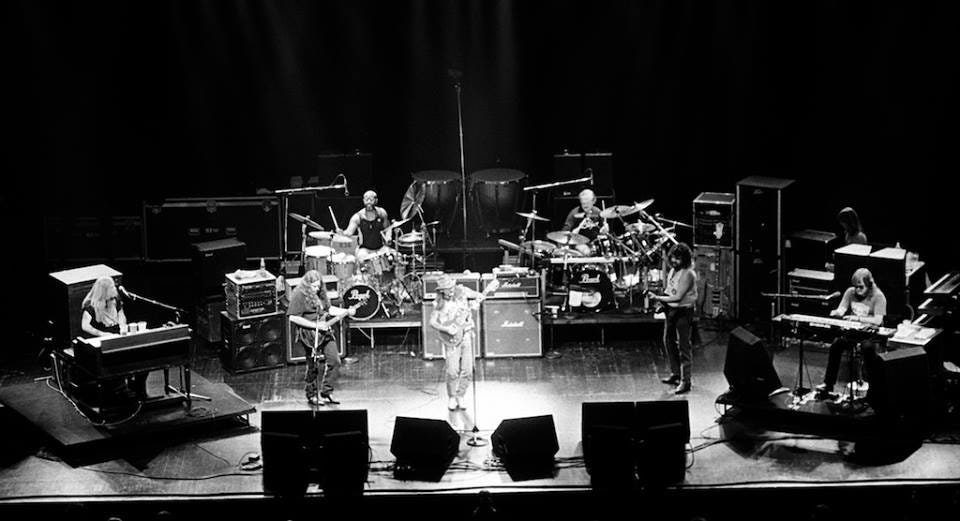
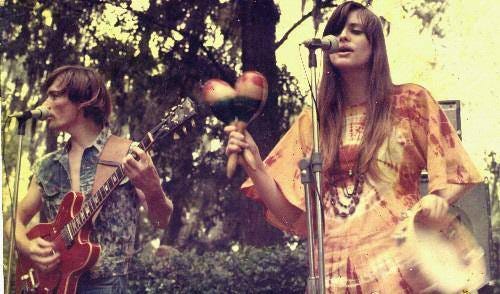
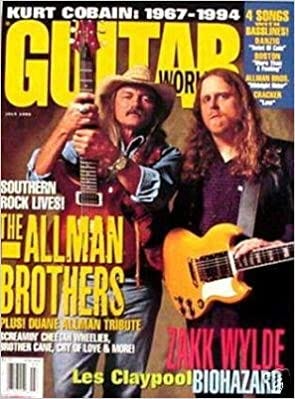
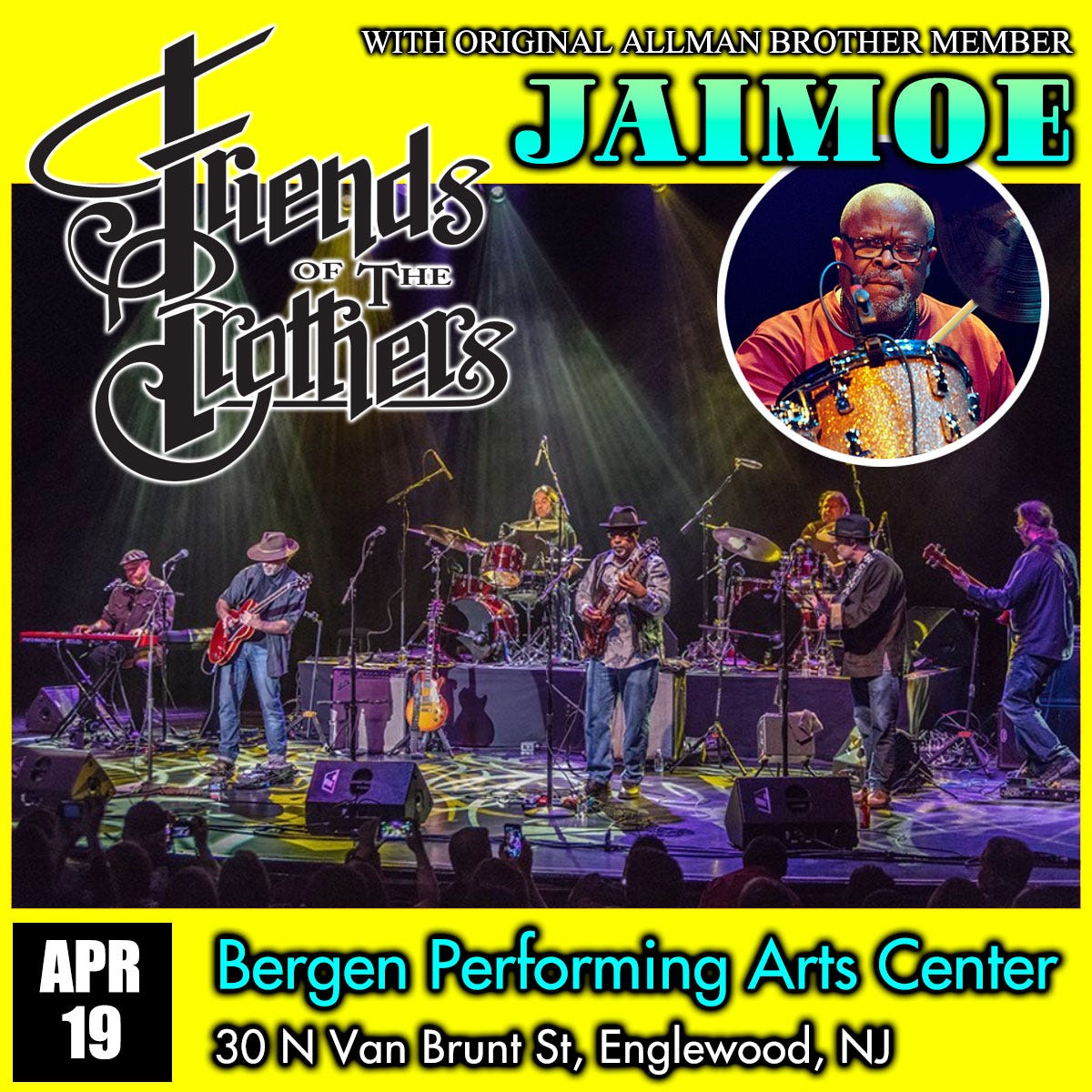
Great Tribute to Dickey. Thanks Alan. Remember my rule of thumb after 2000, was; If Dickey's playing within 500 miles of me, I'm there. I was just smiling, thinking of a show in Indy, maybe 2001-2? Kris Jensen blasting away on the sax. Packed house. The Independent Indy newspaper "NUVO" review heading was... "Dickey Betts shows the Allman Brother's Band what they're missing" This was a great show. Dickey was healthy and in a good mood. At the break, he said .."ok..were going to take a little break but we'll be back, go have a beer...burn one." And of course, we did. He was an original. Have a sweet Easter weekend Brothers and Sisters. KB
Thank you, AP, for the deep dive into DB's story. You have filled a knowledge gap that I have missed through the years. I am not a musician, merely a fan hoping to learn more about the life and times of artists I have long admired.
As a broke college student in Bloomington IN, and one who was introduced to the great musicians of the late 60's early 70's, I was fortunate to be invited to accompany friends on road trips to Purdue University, St. Louis, Cincinnati and Louisville. In Lafayette, I sat on huge amps, stage left, and was spellbound by the ABB. To this day, I regret that I hadn't been more savvy about who they were and what they played. Their music brings me back to those innocent times.
(Backstage meet and greets at Indiana University with Elton John, Richie Havens, ABBA, and more - wow, what a sheltered life I had led.)
Same was true seeing Humble Pie and King Crimson. Watching them jam in the hotel bar after the shows, running into them on the elevator, visiting with Steve Marriott in his room after that. I was so naive. Looking back at those golden moments, I cherish that I was present. (And no, I was NOT a groupie. Just hanging out with friends who had connections. A fly on the wall, so to speak.)
Now as a gray-haired 70-something woman, your experiences and insight bring me joy. I'm looking forward to reading more of your writing - thank you!
PS Your son is fortunate to benefit from your connections. I hope he realizes it while he is young.